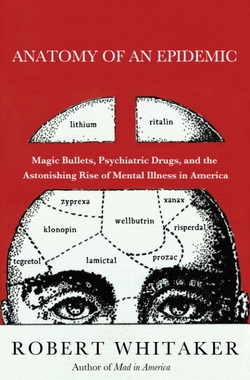 Leeches
Leeches Wow.
Wouldn’t you think that in two millennia, people might have noticed that folks losing pints of blood got worse instead of better?
Actually, I’m sure they did. They would definitely notice when the patient died. So why the extraordinary longevity of such an obviously pernicious therapy?
The answer is simple: human nature. We are emotional, not rational creatures. And we are creatures of habit; our traditions die hard. And we are social animals; shunning by the herd will bring most of us back into line.

Who needs science when there is a story as powerful as the story of blood gone bad, blood carrying humors which must be expelled? It is a graphic and compelling story—blood being such a dramatic metaphor for life. Blood is present at the birthing, present on the battlefield, emblematic of the transition to womanhood, and also emblematic of the manhood rite of wounding. Blood ties of kinship, blood feuds to the death. Blood as giver and as taker of life.
And then there is that human tendency to believe that it is better to do something than nothing. And bloodletting had the additional advantage of being quantifiable. Specific amounts of blood could be let at specific intervals. These could be recorded, charted, studied. There could be right ways and wrong ways for the letting-of-blood. Various techniques were developed, each with its own theory. But best of all, everyone has blood.
And, finally, there is an exchange of some sort going on. The bloodletter is receiving payment. The bloodletter is invested in promoting the practice, and the patient and the patient’s family have a disincentive in understanding that they have been hoodwinked… or that they might be responsible for enabling the harm or death of the one they loved. And then, of course, there is the lucrative cottage industry of leech-farming/ leech-harvesting.

In this case, the practice is only a few decades old instead of millennia, but the principle behind it is the same: human nature.
This blog is my response to reading Anatomy of an Epidemic by Robert Whitaker. The subtitle is “Magic Bullets, Psychiatric Drugs, and the Astonishing Rise of Mental Illness in America."
The first thing that impressed me about this book was the story of the author’s involvement with the subject. He was not a counter-culture type guy. In fact, he had co-founded a publishing company to report on the business aspects of the clinical testing of new drugs. In his own words, “we wrote about this enterprise in an industry-friendly way.” Clearly Anatomy of an Epidemic is not “industry-friendly.” What changed?
Whitaker stumbled across a story about the abuse of patients in a research setting. He did a series of articles on the subject for the Boston Globe. In one of the stories, he reported on a study which had involved withdrawing schizophrenic patients from anti-psychotic medications. Since the medication for this disorder is likened to “insulin for diabetics,” the author questioned the ethics of a study that would deprive the patient of a medication supposedly known to be essential for their health.
In the course of researching this article, Whitaker ran across two findings that nagged at his conscience:
1) In 1994, Harvard researchers announced that outcomes for schizophrenia patients has worsened since 1974 and were no better than they had been a century earlier… as in 1894.
2) Two separate studies by the World Health Organization which found that schizophrenia outcomes were much better in poor countries like India and Nigeria, where only 16% of the patients were maintained on anti-psychotic medications.
The point of all this is that the author of the book was a solid believer in the conventional wisdom of modern psychiatry. He believed that psychiatric researchers had discovered biological causes for mental illness and that their findings had led to the development of a new generation of psychiatric drugs to “balance” brain chemistry. He was to discover that none of these assumptions were true.
Anatomy of an Epidemic is the story of his awakening.
Click here for Part 2.

 RSS Feed
RSS Feed
